Sewol disaster: President pledges to raise ferry as South Korea mourns
- Published
Parents want an independent inquiry, as Steve Evans reports
South Korea's president has promised to raise the Sewol ferry, as the nation marks a year since the disaster.
A total of 304 people, mostly school students, were killed when the ship - which was overloaded and illegally redesigned - sank off Jindo island.
The government has faced a day of anger with relatives cancelling at least one memorial service in protest.
Divers have recovered all but nine of the bodies. Relatives say the ship must be raised and their remains found.
The government says salvaging the ship will cost $110m (£74m) and has previously refused to commit to doing so.
But President Park Guen-hye, speaking at a port in Jindo, said she would take "the necessary steps to salvage the ship at the earliest possible date".
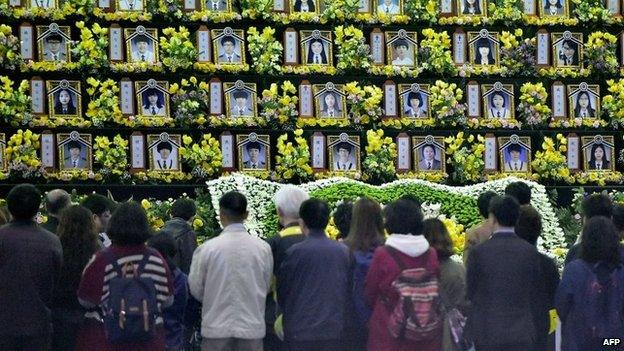
The Sewol ferry disaster left 304 people - mostly teenage students - dead or missing
South Korea's National Assembly adopted a resolution saying a speedy recovery of the ferry would help heal "the minds of the victims, survivors and bereaved families... as well as those of all the citizens".
But relatives of the missing students had said there were not convinced that the Sewol would definitely be raised, the BBC's Stephen Evans in Seoul reports.
They remain wary of the plan, and called Ms Park's announcement vague and politically motivated.

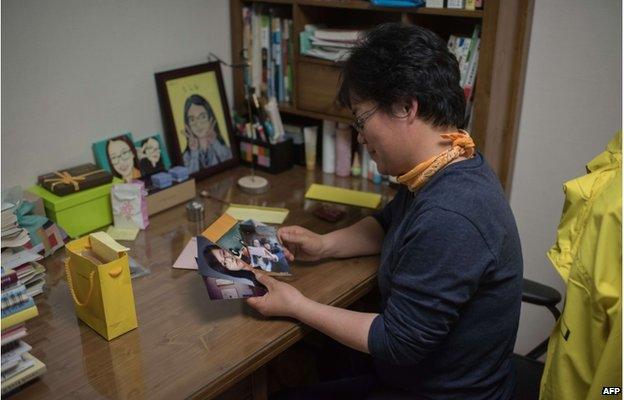
Lee Keum-hui's daughter Eun-hwa died trapped in the ferry. Her body has not been found.
Steve Evans, BBC News, Seoul:
Even as President Park gave the bereaved families what they had been asking for, she must have felt their wrath and their grief.
Dressed in the black of mourning, she stood on a windy breakwater near where the Sewol sank and announced that the vessel would be raised - just as the families had demanded.
"I have a heavy heart and my heart aches to think how painful it is," she says.
But bereaved families had left the port before she arrived, a gesture the South Korean media interpreted as a protest against what the families allege is her previous inaction over both the raising of the Sewol and fulfilling the promise of an independent enquiry.

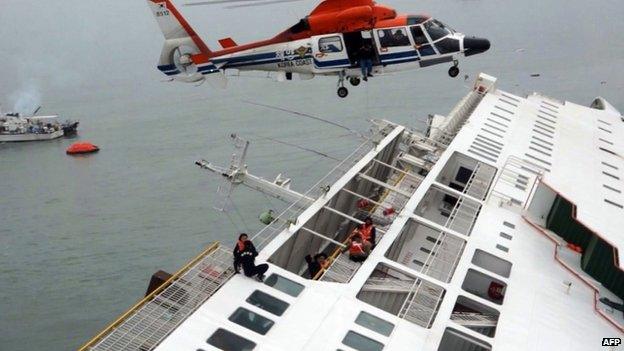
The ship listed and sank on 16 April 2014, capsizing over a three-hour period
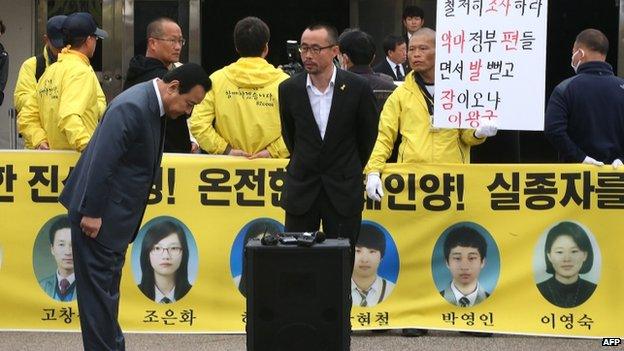
Relatives blocked PM Lee Wan-koo from a memorial hall, amid ongoing anger at the government
Memorial ceremonies are being held across the country on Thursday.
But relatives cancelled a planned service in the city of Ansan in protest against Ms Park's absence from the event.
In the morning, Prime Minister Lee Wan-koo was prevented from entering the venue by relatives of those who died.
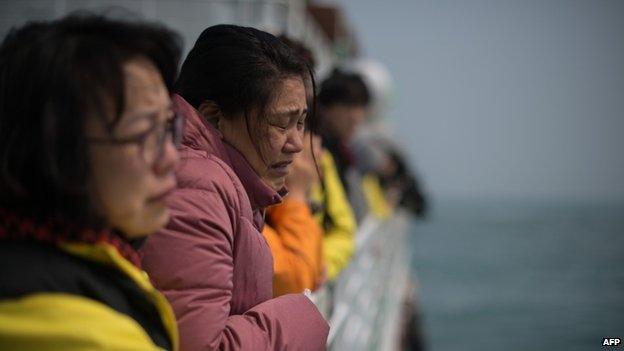
On Wednesday relatives of those who died paid their respects at the site of the disaster
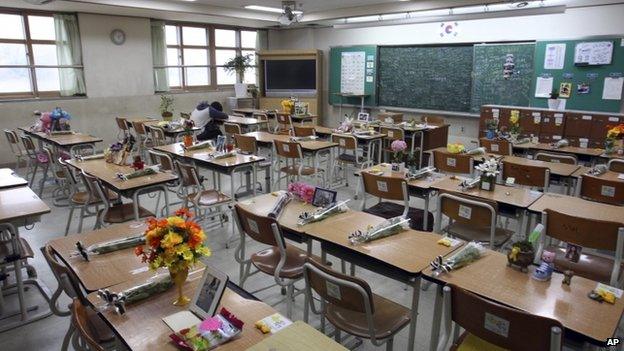
This classroom at Danwon High School has been left as a memorial to the children who died
Investigators say the ferry sank after an inexperienced crew member made too fast a turn. The combination of an illegal redesign and overload meant the ship was unstable.
But some relatives say they want an independent and more thorough inquiry into the disaster, which sparked countrywide debate about regulatory failings and official incompetence.
Most of the crew of the Sewol survived.
The captain and three senior crew members have since been given long jail terms for failing to protect passengers.
Eleven other crew members were imprisoned, as was the captain of the a coast guard vessel involved in the botched rescue effort.
Separate trials were held for employees of the ferry operator, Chonghaejin Marine Co. Its owner, Yoo Byung-eun, disappeared after the disaster and was eventually found dead.
Lucy Hockings explains how the disaster unfolded
Sewol victims
325 students aged between 16 and 17 from Danwon High School, south of Seoul, were on a school trip to the holiday island of Jeju when the ferry sank
Only about 70 survived - many had obeyed orders to stay put as the ferry listed
Several texted their family members goodbye and to tell them "I love you". One also filmed what turned out to be his last moments on his mobile phone inside the ship. The texts and footage were retrieved by parents and later broadcast on national television
Some of the survivors later testified that they had to float out of cabins and most of the crew members did not attempt to help them
At least three crew members died trying to evacuate passengers. They included an engaged couple, Jung Hyun-seon and Kim Ki-Woong, and the youngest crew member Park Ji-young, who gave her lifejacket to a passenger. All three have been named "martyrs" by the government